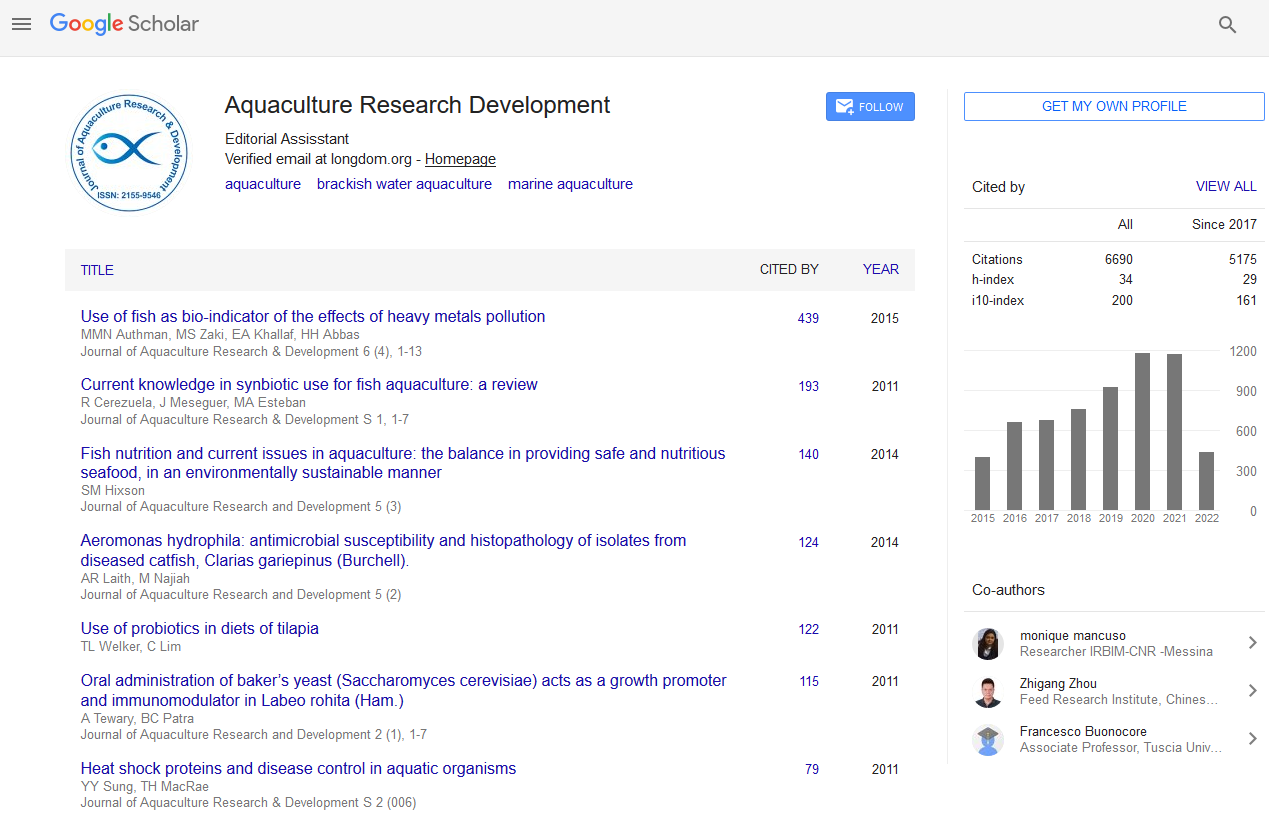PMC/PubMed Indexed Articles
Indexed In
- Online Access to Research in the Environment (OARE)
- Open J Gate
- Genamics JournalSeek
- JournalTOCs
- Scimago
- Ulrich's Periodicals Directory
- Access to Global Online Research in Agriculture (AGORA)
- Electronic Journals Library
- Centre for Agriculture and Biosciences International (CABI)
- RefSeek
- Directory of Research Journal Indexing (DRJI)
- Hamdard University
- EBSCO A-Z
- OCLC- WorldCat
- Scholarsteer
- SWB online catalog
- Virtual Library of Biology (vifabio)
- Publons
- MIAR
- University Grants Commission
- Euro Pub
- Google Scholar
Useful Links
Share This Page
Journal Flyer

Open Access Journals
- Agri and Aquaculture
- Biochemistry
- Bioinformatics & Systems Biology
- Business & Management
- Chemistry
- Clinical Sciences
- Engineering
- Food & Nutrition
- General Science
- Genetics & Molecular Biology
- Immunology & Microbiology
- Medical Sciences
- Neuroscience & Psychology
- Nursing & Health Care
- Pharmaceutical Sciences
Environmental water governance- The economics of water and policy options
3rd International Conference on Aquaculture & Fisheries
September 29-October 01, 2016 London, UK
Ruxandra Malina Petrescu-Mag and Dacinia Crina Petrescu
Babes-Bolyai University, Romania
Posters & Accepted Abstracts: J Aquac Res Development
Abstract:
The present paper takes under analysis of water problems and related opportunities, revolving around two central issues: water scarcity, where the wastewater is seen as a part of the solution through its transformation into new water, clean and usable, and water contamination, where wastewater treatment becomes a business opportunity. Scientific evidence on the perceptions of water scarcity and wastewater treatment as business opportunities is based on a non-probabilistic survey. The questionnaire was applied to a sample of 150 subjects (54% industrial activity, 20% domestic, 13% tourist activity and 13% other activities) from North-Western Romania. The need for wastewater treatment was investigated considering its threefold dimension: Economic (need for water as a resource, costs reduction); ecological (environment protection) and; social (human health protection and provision of clean water). The most important purchasing criteria of a wastewater treatment micro-station declared by the subjects were: The capacity to clean the waters of all the polluting compounds; to comply with the legal standards; the system life span and; the suitability of the microstation to the amount of received wastewater. Based on statistical data, several eco-challenges and their potential implications for environmental governance, business in particular, have been identified.
Biography :
Ruxandra Malina Petrescu-Mag is an Assistant Professor and Senior Researcher at Babes-Bolyai University, Romania and PhD Supervisor at University of Liège (Agro-Bio Tech Gembloux), Belgium. She is specialist in Environmental Law and Policies. She is the author and co-author of more that eight books, 40 scientific articles and coordinator or member in over 10 research projects.
Email: malina.petrescu@ubbcluj.ro


